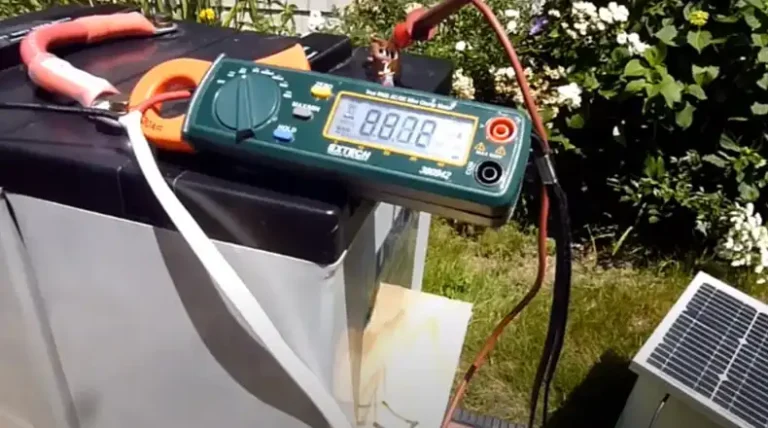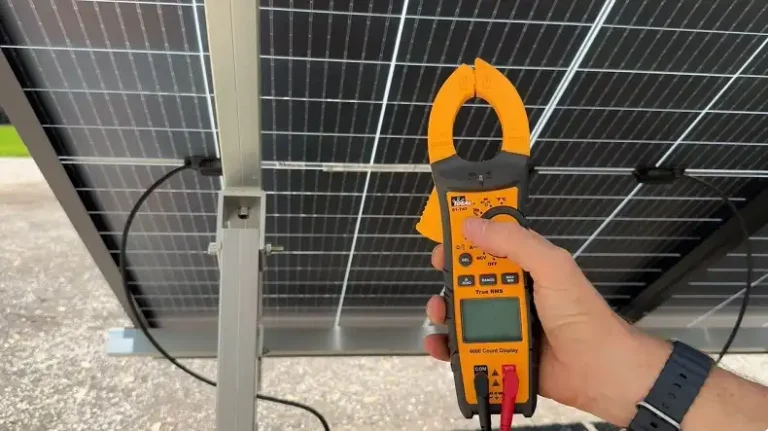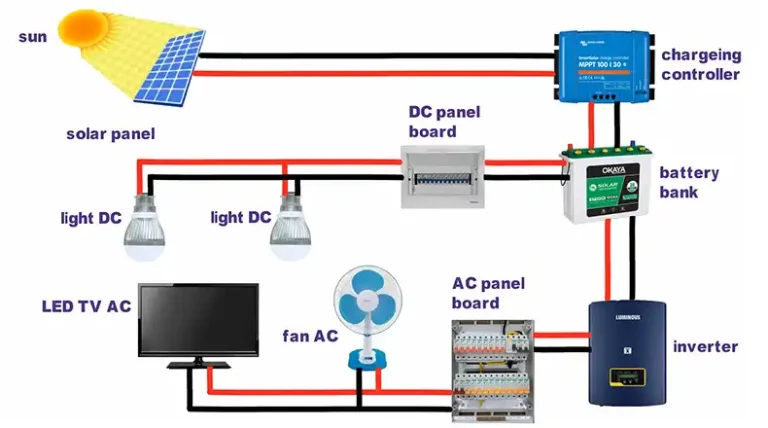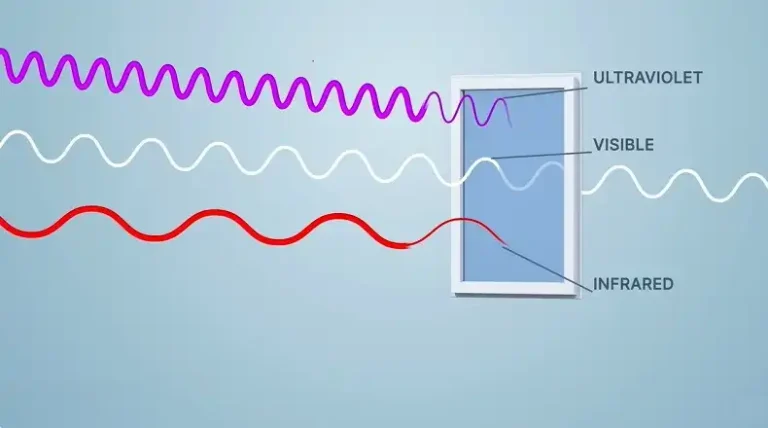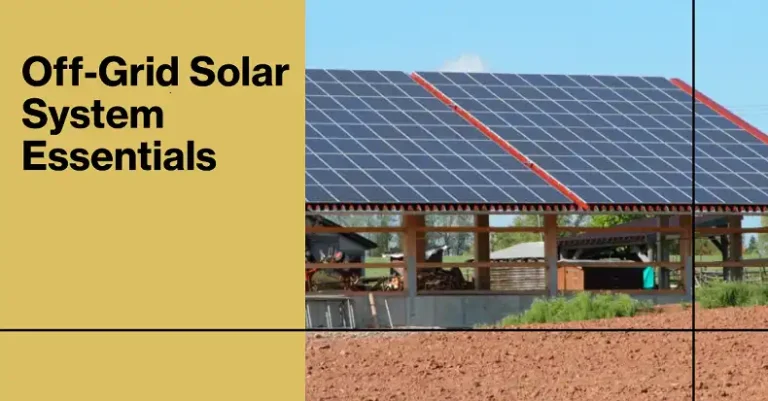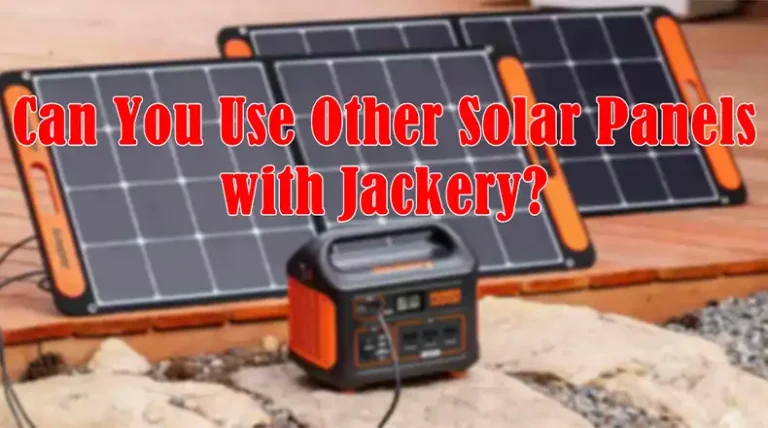Will a 100W Solar Panel Run a 12V Fridge? Is It Possible?
So, you’re out in the great outdoors, relying on your trusty 12V fridge to keep your food and drinks cool. But here’s the catch – you’re far from any power source.
The question on your mind is simple: can a 100W solar panel step up to the plate and keep your fridge humming along? Well, yes, it can. However, the panel won’t be able to operate it alone all day long.
In this article, we’re going to break it down for you and demystify the power of solar energy for your fridge.
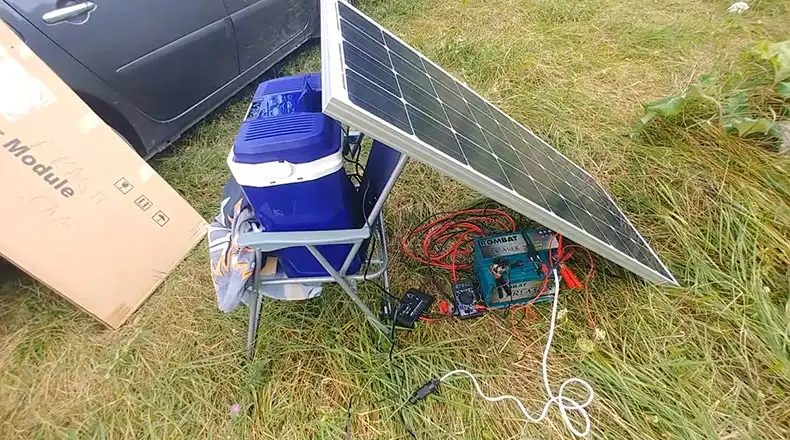
Can a 100W Solar Panel Run a 12V Fridge?
Yes, a 100W solar panel can run a 12V fridge, but it will depend on a number of factors, including the size and efficiency of the fridge, the amount of sunlight available, and the size of the battery.
The amount of power that a fridge draws will vary depending on its size and efficiency. A small, energy-efficient fridge may only draw a few amps of power per hour, while a large, inefficient fridge may draw several amps per hour.
A 100W solar panel can generate up to 6 amps of power per hour in full sunlight. However, the actual amount of power that is generated will vary depending on the angle of the solar panel, the amount of shade, and the efficiency of the solar panel.
If you have a small, energy-efficient fridge, then a 100W solar panel may be enough to run it during the day. However, if you have a large, inefficient fridge, or if you need to run the fridge at night, then you will need a larger solar panel or a battery.
How Much Power is Needed for a 12V Fridge?
Before we delve into the feasibility of a 100W solar panel running a 12V fridge, let’s first understand the power requirements of these essential cooling appliances. After all, it’s all about keeping things cool and energy-efficient.
A typical 12V fridge designed for mobile use, like those found in RVs and campers, generally consumes around 1.2 to 2.5 amp-hours of power per hour. The power consumption depends on various factors, including the fridge’s size, insulation, and the ambient temperature. It’s vital to check the manufacturer’s specifications for your specific fridge to determine its exact power needs.
Power Generated by a 100W Solar Panel
Now, the spotlight shifts to our solar hero, the 100W solar panel. These compact panels have become quite popular for their versatility, making them a favorite among outdoor enthusiasts and off-grid aficionados. But can they deliver enough juice to keep your fridge cool and your drinks chilled?
A 100W solar panel, under ideal conditions, can generate about 4-5 amp-hours per hour. It’s essential to remember that real-world conditions often vary, and factors such as sunlight intensity, angle, shading, and panel efficiency can impact the actual power output. So, in optimal conditions, a 100W panel can theoretically supply enough power to run your 12V fridge. However, the devil is in the details.
How Long Can a 100W Solar Panel Run a 12V Fridge?
The amount of time that a 100W solar panel can run a 12V fridge will depend on the size and efficiency of the fridge, the amount of sunlight available, and the size of the battery. Let’s do a math –
Let’s assume that this is summertime and you are using a 60 L 12v fridge that needs 55Ah of power per day to run in optimal condition. You are staying in Florida where you can get 6 hours of active sunlight.
Let’s assume that your fridge’s efficiency is 80%, so the output you will have per day is (100 x 0.8 x 6) = 480W
Power needed for your fridge per day – 55 x 12 = 660 Wh
So, the 100-watt panel can run that fridge per day – (660Wh/480W) = 1.4 hours.
If you have a small, energy-efficient fridge and you are using a 100W solar panel in full sunlight, then the solar panel may be able to run the fridge for the entire day. However, if you have a large, inefficient fridge, or if you need to run the fridge at night, then you will need a larger solar panel or a battery.
Final Thoughts
It’s essential to understand the power requirements of your fridge, the capabilities of your solar panel, and the unpredictability of weather conditions. While a 100W solar panel can theoretically power a 12V fridge, practical applications might require additional support.
So, next time you head out on your outdoor adventure or decide to go off-grid in your cozy RV, remember the power play between your solar panel and your fridge. Be prepared, stay informed, and let the sun work its magic while you enjoy the cool comfort of your 12V fridge.
Questions You May Ask
Can a 100W solar panel run a 12V fridge all day and night?
Running a 12V fridge continuously day and night on a 100W solar panel alone might be challenging due to varying sunlight and energy consumption. It’s advisable to have a backup power source for uninterrupted operation.
What is the ideal battery capacity for a 12V fridge powered by a 100W solar panel?
The ideal battery capacity depends on your fridge’s power consumption and how long you want it to run without direct sunlight. A 100Ah battery is a common choice, but you may need more if you plan for extended off-grid stays.
How can I maximize the efficiency of my 100W solar panel for running a 12V fridge?
To optimize your solar panel’s performance, ensure it’s positioned to receive maximum sunlight, keep it clean, and use an efficient charge controller. Additionally, consider energy-efficient appliances and proper insulation for your fridge.
Can I run other appliances alongside my 12V fridge using a 100W solar panel?
It’s possible to run other small appliances like LED lights, fans, or charge your devices alongside a 12V fridge with a 100W solar panel, but you should carefully calculate and manage your power consumption to avoid overloading the system.
Are there any portable power stations that work well with 100W solar panels for 12V fridges?
Yes, there are portable power stations equipped with a battery, inverter, and solar charge controller designed for use with 100W solar panels. These can efficiently power 12V fridges and other devices, offering more flexibility in off-grid situations.

